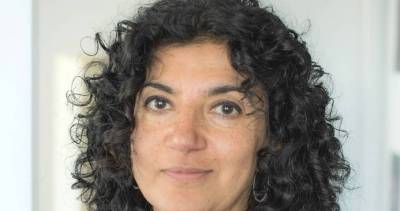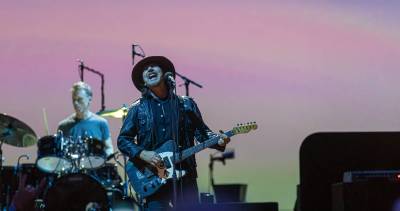UBC Opera equips students with a rich repertoire of experience
The program delivers a well-rounded approach to opera training
“I thought I hated opera,” UBC music professor Nancy Hermiston said with a chuckle when asked how she became interested in the art form.
“My dad and I used to watch The Ed Sullivan Show, and every once in a while there’d be an opera singer on there,” Hermiston told the Straight by phone.
“My dad and I would just be horrified, and he’d say to me, ‘Nancy, go and turn down that television until she’s finished,’ ” Hermiston said, laughing. “I thought I wanted to do musical theatre.”
Hermiston reflected on the time she had to sing a solo in class while studying to be a music teacher. “My professor said, ‘You have a real voice; you should be going to Banff. I’ll give you a scholarship.’ ”
Much to her dismay at the time, the scholarship offered was not for musical theatre but for opera.
Hermiston recounted that the pivotal moment happened on that trip to Banff, while watching a live professional rehearsal of Puccini’s Tosca.
“I just thought, ‘Oh, my god, what is this beautiful music?’…and the drama of it all; the second act is so compelling…and in about 10 minutes, I was in love. I felt after that, ‘Okay, this is what I want to do for the rest of my life.’ ”
Hermiston is now in her 27th year of teaching at UBC Opera, one of Canada’s most robust opera programs.
Since being appointed as coordinator of the voice and opera divisions in 1995, Hermiston has expanded the Opera Ensemble into a 90-member company that produces three main productions every season, performs several concerts, and tours internationally.
Hermiston explained that the four-year undergraduate opera program at UBC is unique. “In many programs, the students don’t get to be in the operas until maybe their third or fourth years,” she said. “At UBC, students in their first and second years have the opportunity to come on-stage and perform small parts.”
From first year undergrads to doctoral students, all levels work together in the operas, Hermiston told the Straight. “This built-in mentoring system makes sense because there’s so much to learn, and being on-stage is a marvellous learning experience.”
In addition to building a repertoire, Hermiston believes that getting early stage experience is crucial to fuel the enthusiasm that’s required for a career in opera. “They need that passion—they can’t lose that passion—because that’s something you really need to be in this business.”
As part of their training, students learn other aspects of the business by working backstage on productions, another unique feature of the program.
“It started out as a necessity,” Hermiston said. “But if you really want to do a fabulous production, there has to be…an admiration and appreciation of what each person’s job is.”
As well as fostering respect and teamwork, this gives the students—once they leave the program—more knowledge than most singers will have. “I always feel that makes them better opera citizens,” Hermiston added.
Going on tour is another important part of an opera education.
“Opera singers travel all over the world to sing,” Hermiston explained. “Of course, the music side of it is wonderful,” she continued, “but the human side is very important.”
She elaborated by saying that travelling internationally creates tolerance, respect, and curiosity for other cultures and establishes relationships with future colleagues. “I think people don’t realize the breadth of the experiences opera students get…and how that affects them as people for the rest of their lives.”
Hermiston also noted the discipline needed to pursue a career in opera.
“You have to be almost like an Olympic athlete,” she declared. “You have to keep your body in shape and take care of your voice, because that’s what your capital is.”
She alluded to some developing research on opera training’s contribution to brain plasticity, because of the complex multitasking involved. Artists have to sing and act in multiple languages, learn choreography, follow the conductor, manage the props, and contend with costumes that can weigh up to 45 pounds.
An extra layer of discipline was needed in order to forge ahead with the program’s season during the pandemic. The company was able to keep the productions going by wearing masks, keeping apart, forgoing an orchestra, and filming the shows. “A performer really feels the energy and the emotion of the audience,” Hermiston said. “We sure missed them.”
The Opera Ensemble is preparing to welcome back live audiences in November. The upcoming season opens with The Gondoliers from Gilbert and Sullivan and is followed by Mozart’s The Marriage of Figaro. The second half of the programming presents Shadow Catch, which explores the history of Vancouver’s Oppenheimer Park, and the final show is a fairy tale sung in Czech, which Hermiston described as similar to The Little Mermaid.
Hermiston expressed gratitude toward her mentors and UBC Opera’s donors, and she attributed the program’s success to them. “It could not have gotten to where it is today if it hadn’t been for them. Opera is an expensive education…so in order to give the students what they really need, I needed help. And Vancouver people stood up and gave me that help.
“So that’s my story—from not liking it to devoting my life to it.” Hermiston concluded. “So when people say they don’t like opera, I always smile, because it’s like food: there’s so many different types…you won’t like every opera…but there’s so many things to choose from…You always have so many different things to experience in opera.”















Comments